WBW #29: Shinn Estate Vineyards 2004 Cabernet Franc (North Fork)
I don’t mean any offense to Jack or anyone else who believes strongly in biodynamic farm practices. Really I don’t and I think that there are some great wines being made with biodynamic-grown grapes. Anyone who has tasted any can see that.
But I don’t buy into the benefit some of the more ‘hocus pocus’ techniques. Maybe it’s the former scientist in me. I was a biology major after all. I’m all for organic and sustainable farming. The benefits to the land, environment and those living there are obvious and much more provable. In my mind, biodynamic gets a little to close to the of practices of Merlin or David Copperfield, even if it gives wineries a hot and well-received marketing hook-also known as their ‘story.’ Of course, I think that marketing hook often leads to the attitude that conventional growers somehow care less about their vines, land or grapes. That’s bs.
Anyway, this is Wine Blogging Wednesday, so I’m going to get off of my soap box. I’m not anti-biodynamics after all. I’m just not a believer. Maybe one day someone will convince me.
So, for WBW this time around, Jack and Joanne asked us to seek a wine made from biodynamically grown grapes, even going so far as to serve up a master list of wineries that qualify. And, lucky for me, Shinn Estate Vineyards, right here on the North Fork is on the list, so I chose their 2004 Cabernet Franc.
The nose on this deep ruby red wine is slightly more complex and nuanced than many local cab francs (and you know I love them), showing intense red raspberry fruit with toasty oak, vanilla, spice, violet and orange zest. The palate is rich and flavorful with red raspberries, red cherries, tangerine, vanilla and sweet oak. The tannins are soft, the mid-palate round and mouth-filling. The finish is relatively long for the variety with a spicy note at the end.
I’m curious to see how this wine evolves with some further cellar time. At $38, one would expect some longevity. 175 cases produced.
Price: $38
Grapes: Cabernet Franc
AVA: North Fork of Long Island










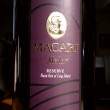
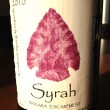

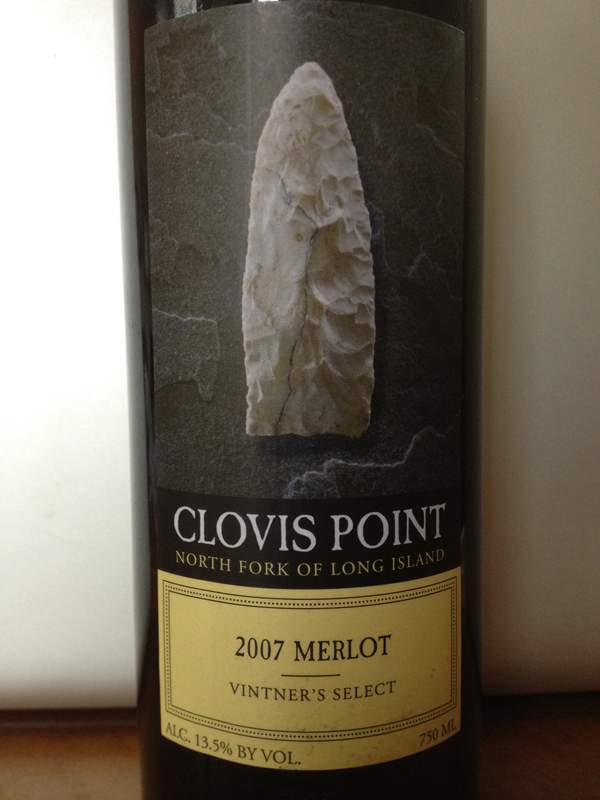
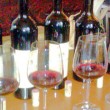


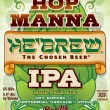

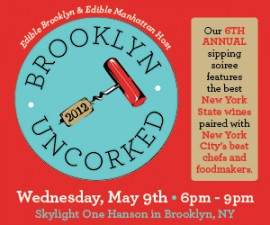

Wow! Fork & Bottle certainly has an inclusive list:
A winery might be any of the following:
• Certified Biodynamic
• Certified Demeter
• Practicing Biodynamics
• Practicing Sustainable Agriculture
• Certified Organic with some BD practices
• Practicing Organic with some BD practices
• From Biodynamically Grown Grapes
• From Organically Grown Grapes
• Experimenting with Biodynamics
• A mix of Organic and Biodynamic
• or Converting to Biodynamic
Although I tend to have the same view of biodynamics as you, Lenn, I also think that in fairness to “true believers” (and it is a faith based system) only the first three categories listed have any claim to call their vineyards/wines “biodynamic”. Since the basic premise of Steiner’s philosophy is that biodymanics is a whole farm system, picking and choosing certain practices negates the entire concept!
Being a little bit biodynamic is just like being a little bit pregnant, it just ain’t possible!
At $38 per bottle I’m hoping they will refill mine after I’m finished. The purchase did feel satisfying though because I dug their farm and the fact that the owners were pouring and answering questions when I was there.
It is amazing that anyone would contend that biodynamics is faith based. All that one has to do is read the extensive research available to understand that biodynamic farming is based in real time hands on farming experience and not in laboratory style trials conducted by academics that often prove to be fruitless (pun intended). What is probably more true is that those seeking a biodynamic solution have “lost faith” in the conventional farming which is driven and funded by the large petro-chemical corporations.
The failure of “conventional farming” is ever-increasing and our environment has been too long the victim of those that would contend that anyone trying to rid themselves of dangerous pesticides is headed down the wrong path. “Conventional farmers” pick and choose from a large inventory of pesticides to find the “chemical cocktail” that works best for them. They “believe” the academic research often blindly without considering the long term consequences that these pesticides have to our health ann environment. Biodynmic farmers choose from and develop there own farming techniques based on a whole farm system that attempts to give back to the earth what is taken from it by using organic principles. After they develop a farm system specific to their terroir they can apply for certification. Here at Shinn Estate Vineyards we have been engaged in this difficult and challenging process for seven years and have yet to reach our goal of becoming certified, but have made great progress. Asking us to never discuss our philosophy and to not engage in a discussion about our practices until we are certified is simply ludicrous and counter productive.
In the meantime we will keep trying and are thankful to those that support our effort.
From Wikipedia:
Biodynamic agriculture, or biodynamics ocomprises an ecological and sustainable farming system, that includes many of the ideas of organic farming (but predates the term). It is based on the anthroposophical teachings of Rudolf Steiner, particularly on the eight lectures given by him in Schloss Koberwitz in Silesia, Germany in 1924 (nowadays close to Wrocław, Poland), shortly before his death. At the time Steiner believed that the introduction of chemical farming was a major problem. Steiner was convinced that the quality of food in his time was degraded, and he believed the source of the problem were artificial fertilizers and pesticides, however he did not believe this was only because of the chemical or biological properties relating to the substances involved, but also due to spiritual shortcomings in the whole chemical approach to farming. Steiner considered the world and everything in it as simultaneously spiritual and material in nature, an approach termed monism.
http://www.kheper.net
Rudolph Steiner
Steiner’s Life and Teachings
Rudolph Steiner Rudolph Steiner (1861-1925) is an important occult philosopher. An Austrian, he was greatly influenced by Goethe’s works, and worked for a time at the Goethe archives at Weimer. He later became involved in the Theosophical Society, and founded a new German branch. But although obviously influenced by the Theosophical World-view (the concept of seven planes, cosmic cycles and sub-cycles, etc) Steiner’s approach and teachings differed markedly from those of the rest of Theosophists. Whereas the Theosophists, under the inspiration of Blavatsky’s orientation, looked to the East - to India and Tibet, for inspiration - Steiner was preiminantly a European mystic.He was interested in European occultism, European mysticism, European Christianity
From the website http://www.biodynamics.com:
Biodynamics is part of the work of Rudolf Steiner, known as anthroposophy - a new approach to science which integrates precise observation of natural phenomena, clear thinking, and knowledge of the spirit. It offers an account of the spiritual history of the Earth as a living being….
From http://attra.ncat.org
Summary
Biodynamics uses scientifically sound organic farming practices that build and sustain soil productivity as well as plant and animal health. The philosophical tenets of biodynamics—especially those that emphasize energetic forces and astrological influences—are harder to grasp, yet they are part and parcel of the biodynamic experience.
http://www.biodynamics.org
Research Approaches
In biodynamic agriculture one is confronted with concepts of terrestrial and cosmic origin, polarities, and questions of vitality and nutritional quality. The pioneering biodynamic researchers, in particular Pfeiffer and Kolisko, found conventional research methods were not always applicable and asked Steiner for advice, which led to the development of new and complementary research methods. Some of the most important biodynamic research methods, that have evolved from this early work, are outlined below.
I guess I am just a little confused, I thought mysticism, occultism, spiritual development and astrological influences might all be related to something faith based. Thanks for pointing out my error. I also see that the way to “prove” that these methods work is to devise a whole new method of research that doesn’t have to rely on reproducible results.
Biodynamics DOES involve faith. That is clearly spelled out in Steiner’s work. If you want to rail against the petrochemical companies and their degradation of the planet, right on! If you want to lead the way to a new Utopia of sound growing practices, more power to you! Don’t, however, corrupt and co-opt a philosophy to make it easier to market to your customers. Explain to them what it is you do and how it is different than biodynamics. The spiritual aspect of biodynamics is the core of the system, the basis from which all other aspects grow.
Disclaimer: I am not a “believer” though I do think there are many sound practices used by biodynamistists(sp?). I just hate to see people misled.
Please explain how we have “co-opted and corrupted” a philosphy? We thought that we had embraced it while trying to understand and put it to good use on our farm. We cannot apologize for that.
A friend of mine just called and when I mentioned to him the debate that I was having on this blog he wondered out loud why people who are on the same side waste there energy arguing about who is the purest.
co·opt –verb (used with object)
3. to appropriate as one’s own; preempt
cor·rupt –adjective
3. made inferior by errors or alterations, as a text.
8. to alter (a language, text, etc.) for the worse; debase.
David-Do you bury cow horns filled with silica and dig them up 6 months later to spray in the field? Do you use any of the preparations presribed by Steiner when making your compost? Do you time your planting,thinning, hedging, harvest or any operation according to the phase of the moon and position of the stars? I don’t think that you do but please correct me if I’m wrong. That is what I mean when I say you have co-opted and corrupted a philosophy.
I think that this discussion is intended to help those less well versed in the defintion of biodynamics understand what the true meaning is. It has nothing to do with purity, it has to do with the truth. I may well say that I am very similar to Matt Damon, but the truth is I’m a short, fat, middleaged man!
Ben,
As I have stated before in my very first response to your comments, Shinn Estate Vineyards is not certified biodynamic or organic nor has it ever claimed to be. However, we do use a long list of biodynamic practices in our vineyard that include intensive cover cropping over the entire vineyard floor, no tilling of any soil at any time on established vineyard plots, soil drenches with compost tea preparations, organic fertilization of our soil; all vine manipulations are done to biodynamic standards in regard to shoot thinning, hedging, harvesting of fruit by hand, timing of pruning, compost pile composition and ingredients;including chamomile and dandelion collected from the vineyard floor, mulching of prunings, composting of winery waste,creating a beneficial wildlife habitat. When possible we harvest and press on a waxing moon.
However,for your information following the astral calendar is simply a request by the demeter, not a requirement for certification other than the need to plant on a waning moon which we will be doing again this coming spring. You are welcome to come by and see for yourself, but until you do please refrain from making outlandish judgements regarding our practices.
Ben,
One important thing that I forgot to metion in my last post. We receive nothing but complete support from organic and biodynamic growers from around the world. They recognize the difficulty of our effort and are not surprised that we are constantly challenged by (in your words) “non-believers”.
David
My quarrel is not with the excellent methods you use to produce the fine wines that you do. My contention was that biodynamics was “faith based” and I was perhaps wrong in using that terminology, I should have said spiritually based. And , that when the spiritual aspect is removed, the processes are no longer “biodynamic practices” but simply good farming.
Again I’ll cut and paste from http://attra.ncat.org/attra-pub/biodynamic.html#the
While biodynamics parallels organic farming in many ways—especially with regard to cultural and biological farming practices—it is set apart from other organic agriculture systems by its association with the spiritual science of anthroposophy founded by Steiner, and in its emphasis on farming practices intended to achieve balance between the physical and higher, non-physical realms†; to acknowledge the influence of cosmic and terrestrial forces; and to enrich the farm, its products, and its inhabitants with life energy
Or from Demeter’s own site:http://70.103.140.103/~demeteru/?page_id=6
What distinguishes a Demeter certified Biodynamic farm from a certified organic farm is that, in its entirety, a Demeter Biodynamic farm is managed as a living organism. This is the fundamental principal of the Biodynamic farming method. The special body of knowledge which underlies Biodynamic agriculture, insofar as this knowledge extends beyond previous practical and scientific experiences, is derived from Rudolf Steiner’s “Agricultural Course”, and the spiritual context of Anthroposophy, within which this Course was originally held.
So, perhaps we are disagreeing about semantics, but the thing that differentiates organics and biodynamics IS the spirituality, which you deny (“It is amazing that anyone would contend that biodynamics is faith based.”)
I thought we were tasting biodynamic wines!
Sounds like we’re in Kitchen Stadium for Battle Biodynamics! “Fuka-son, what is Ronald doing with that Cow-horn? Oh, he is placing Torchon of Foie Gras into the horn, swirling to the left 60 times, and…”
lol!
Sorry Jack, didn’t mean to sidetrack your WTW theme!
So that’s a NO on the refill then, lol? Since David is here, one question…Do you recommend drinking the 04′ now or waiting a year or two?
We taste the Shinn Estate Vineyards ’04 Cabernet Franc nearly everyday in the tasting room and honestly have found it to be a little closed over the last two months so decant it now giving it plenty of air, hold it for 6 months, or up to 7 years. After that we will just have to see.